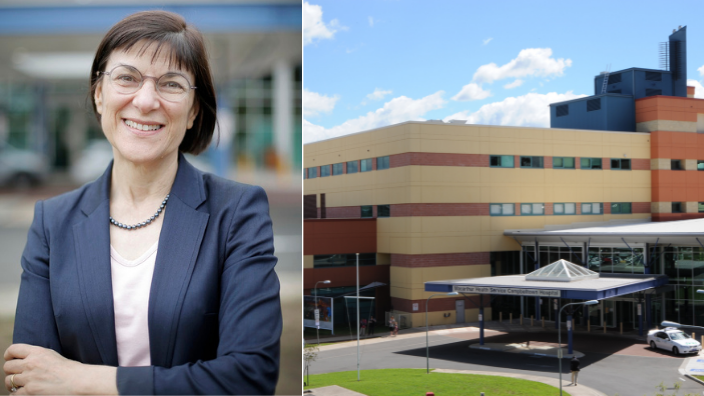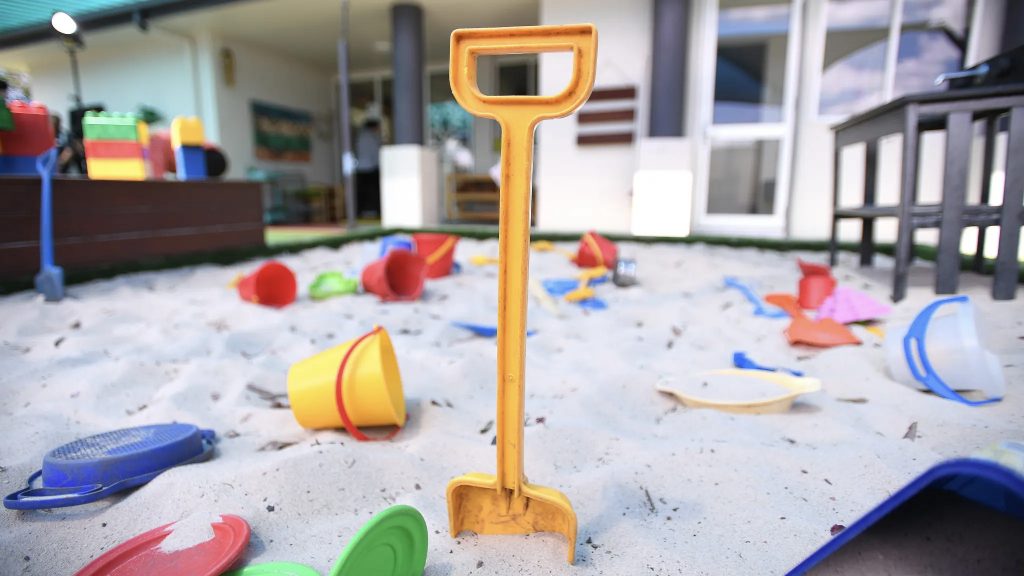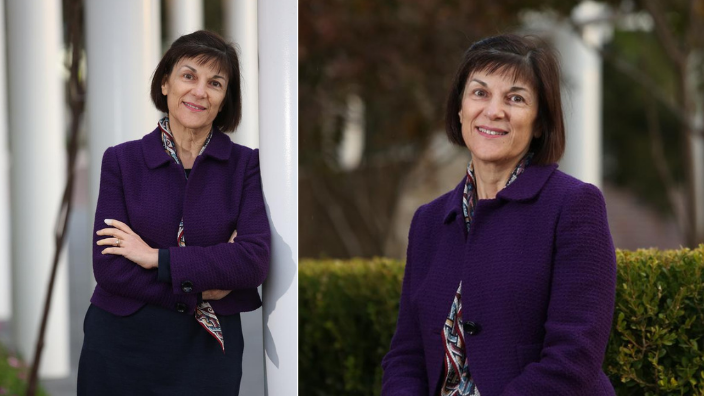When will children receive the COVID-19 vaccine?
How will immunocompromised people navigate life with COVID in the community?
Dr. Connie Katelaris has the answers.
Hi Connie! Can you describe what you do and what your specialty or focus is?
I am a clinical immunologist/allergist so I work with children and adults who have all types of allergic disorders – asthma; hayfever and sinusitis; skin allergies such as eczema or hives and swelling; allergic reactions including anaphylaxis to food, drugs, stings, and other substances. On the immunology side, I see people with various autoimmune conditions, inflammatory conditions, and immunodeficiencies where the immune system does not work well and there is a risk of recurrent infections.

You are Head of Department at Campbelltown Hospital. Can you describe the scene to us? Is the strain on the hospital currently easing or rising?
Our hospital, being in South West Sydney is in an area of great concern and has been extremely busy because of the COVID crisis. We have had up to four wards devoted to COVID patients with junior staff being rostered on around the clock. Many specialists have also been working in these wards and others have taken on work outside of their specialty to help out with all patients. As you can imagine, the intensive care staff have been under huge pressure with very high dependency patients needing intensive care. Many of our nurses have taken on other roles such as well helping out with testing, vaccinations, and overseeing care in the home for those who are not so ill with the infection. Meanwhile, we are all trying to do our “normal tasks” as well; up till now all our outpatient appointments have been via telehealth but hopefully, we can resume face-to-face consultations soon.
How common are allergic reactions to Australia’s COVID-19 vaccines and why can they occur?
Allergic reactions to our COVID-19 vaccines are extremely rare but have been reported with both mRNA vaccines – Pfizer and Moderna at a rate between 4-11 per million. Allergic reactions to the AstraZeneca vaccine are even rarer.
The mechanism of the apparently allergic/anaphylactic reactions to COVID-19 vaccines has yet to be determined. The mRNA vaccines contain polyethylene glycol (PEG), which has rarely been implicated as an allergen in anaphylactic reactions to other PEG-containing products and medications. AstraZeneca vaccine contains polysorbate, and it has also rarely been implicated as an allergen in anaphylactic reactions to polysorbate-containing products and medications. For people with a past history of anaphylaxis to PEG or polysorbate, the respective vaccines are contraindicated.
We have seen a number of people who have had allergic-type reactions after a vaccine and yet under close supervision have been able to tolerate another dose.
We do not list previous anaphylaxis to a food or drug as a reason not to receive the COVID vaccine but such people are advised to be observed for 30 minutes after the vaccine is given. All vaccination centers are equipped to manage allergic reactions.
The TGA is yet to approve a COVID-19 vaccine for children under 12 years old. When can you see under 12’s getting vaccinated?
Children under 12 years of age are not yet able to access COVID-19 vaccines in Australia; the reason for this is that the safety and effectiveness of the vaccines for this age group are still being studied.
Various studies underway in other countries are examining COVID-19 vaccines in children aged between 6 months and 17 years. Once published, the results of these studies will provide further information about the risks and benefits of vaccinating young children against COVID-19. Our health experts examine emerging evidence on the safety and effectiveness of COVID-19 vaccines in children and I am sure that once evidence is available we will see approval for this age group in Australia.

What do you make of the move to mandate COVID-19 vaccinations in schools & childcare centres?
Children may show mild symptoms of COVID-19 infection such as a sore throat, or they may have no symptoms at all yet even when they are asymptomatic they can still transmit the virus and may spread COVID-19 through schools and family groups.
On the other hand, COVID-19 can cause serious illness in children. though it appears the risk of serious illness and death is lower compared to adults. The risk of serious illness may also depend on the strain of COVID-19, with earlier strains such as alpha, being less problematic but with new strains emerging, more children become unwell and vaccination is one of the best ways to protect them.
There have been over 4,000 cases of COVID-19 in Australian children aged from 0–9 years and over 6,000 cases in children aged 10–19 years.
Research suggests people with immunodeficiencies generate less robust responses to COVID-19 vaccines. How can this be addressed?
The term ‘immunocompromised’ applies to a wide variety of conditions and treatments that decrease immune function. Conditions include primary immunodeficiencies present from birth, as well as more common secondary immunodeficiencies resulting from diseases such as HIV-AIDs, diabetes and leukemia. People can also become immunocompromised because of medical treatment needed for treatment after a transplant, or to manage those with certain autoimmune diseases and cancers. Studies of vaccines against other viruses show that immunocompromised populations do not mount the same response to vaccination as non-compromised populations.
Most studies with COVID vaccines so far have examined patients with secondary immunodeficiency and have tracked antibody response to vaccination. These studies indicate that some types of immunocompromised patients do not mount as robust of an antibody response after COVID-19 vaccination as healthy patients.
With the emergence of new strains, the vaccines may not give as much protection as with earlier strains so immunocompromised individuals may not be safe from infection even within highly vaccinated populations. For this reason, advice is now given for certain immunocompromised people to have a third, booster dose after the initial vaccination protocol. This is an area of active research and more information will come from studies examining infection rates in immunocompromised people who have received the vaccination.
COVID-19 restrictions will lift entirely in NSW for everyone on December 1. How will immunocompromised people navigate life with COVID in the community?
I am certain this will cause much anxiety for those who have underlying risk factors. For herd immunity, we need well over 90% of all the population vaccinated so we must still encourage people to seek vaccination. For immunocompromised people, a booster vaccine dose has just been recommended by ATAGI so these people need to check with their doctor regarding their eligibility for the booster. Practising all the health advice measures will still be necessary.

How can the community be mindful of these communities and help keep everyone safe?
Although we are ”opening up” as a society, we must be mindful that the virus is still circulating and is likely to be around for some time yet, perhaps for years. We are likely to see fewer infections over summer when people spend a lot of time outdoors but transmission is still very possible with close contact and in indoor environments with poor ventilation. We must follow all health advice at all times, especially practising safe distancing and mask-wearing when indoors as well as good hand hygiene. Remember that the more people that are vaccinated, the safer it is for all of us. In particular, we should get tested if we have any symptoms and isolate as needed. We should all be mindful of those in our society who are more vulnerable – the elderly, children, and those people with underlying chronic diseases including immune deficiencies. I believe this is the duty of all of us in a caring and compassionate society.
What will emerging variants of COVID-19 mean for the community down the road?
All viruses, including SARS-CoV-2, the virus that causes COVID-19, change or mutate over time. Most changes have little impact on the properties of the virus, however, some may affect how easily it spreads, or how severe the disease might be or alter the effectiveness of the currently available vaccines. We are all familiar with the fact that the influenza virus changes often, which is why we are encouraged to have a new flu vaccine every year.
We have already seen a number of variants of SARS-CoV-2 emerge in UK, Brazil, South Africa, and India. Variants may have increased ability to infect people and may show some resistance to currently used vaccines although at present our currently available vaccines are conferring significant protection. In the future, we may need an annual vaccination that has been made with the latest variants in mind.
We must have adequate funding for our scientists to continue studying the genetic sequence of viruses so we know how it is changing.
How do you see life with COVID-19 in the community in five years? Ten years?
I think COVD-19 will be around for years to come. We will learn to live with it a little like the situation with influenza. We will probably need an annual vaccination to cover new strains and unfortunately, we will have deaths each year from this infection so we will all have to practice the well-publicised public health measures continuously.
What advice should someone be given if they are still unsure of the COVID-19 vaccine for either themselves or their loved ones?
Vaccination is the only way out of this pandemic! We need well over 90% of the total population vaccinated in order to have herd immunity and to stop the spread of the virus. This is the only way we will protect ourselves and those most vulnerable to this virus– our parents, grandparents, expectant mothers, those with chronic illness. We should see this as our duty and responsibility.

